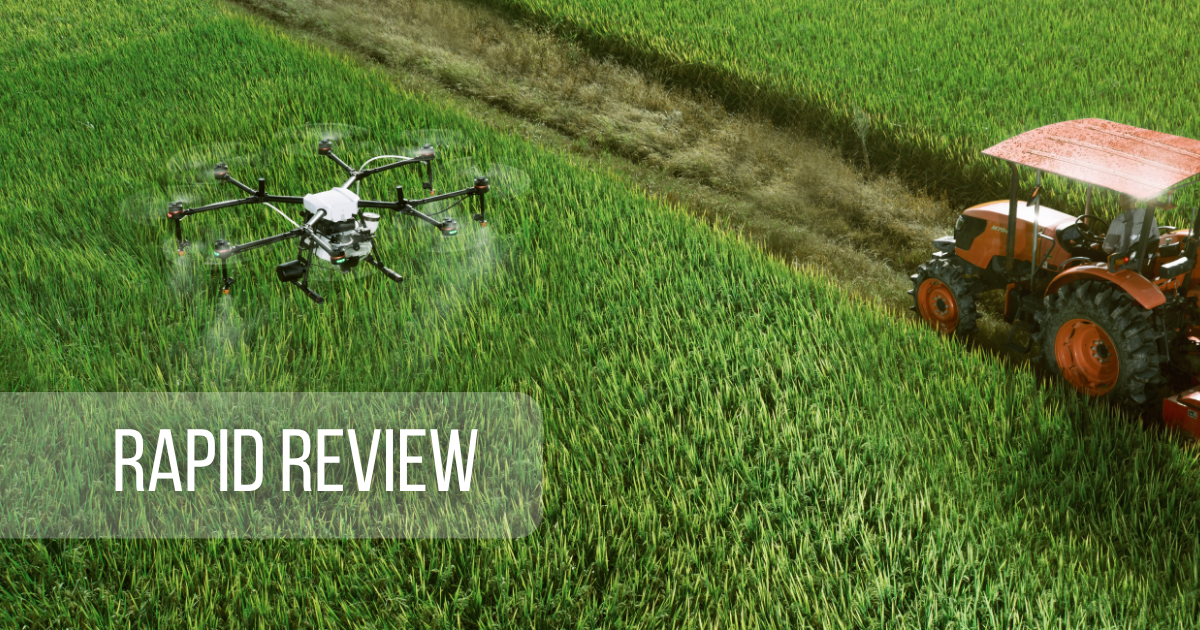

By 2050, the global population is projected to reach approximately 9.7 billion, driven largely by growth in developing regions such as Africa and Asia (World Bank 2015). This rapid population increase results in high demand for food, placing immense pressure on agricultural systems to meet growing demand. In response, there is growing interest in leveraging artificial intelligence (AI) to develop innovative solutions that enhance agricultural productivity, efficiency, and resilience.
The rapid review aims to understand whether these technologies truly serve the needs of smallholder farmers in low-and middle-income countries (L&MICs).
Commissioned by the FCDO's Research Commissioning Centre (RCC) and in partnership with 3ie and University of Birmingham, Athena Infonomics conducted a rapid review to assess the landscape of AI-enabled agricultural solutions. The rapid review explores critical questions around effectiveness, equity, adoption barriers, and contextual alignment – providing actionable insights for responsible and inclusive AI integration in smallholder food and agriculture systems.
Through the rapid review we identified interesting evidence on the current state of the digital agriculture sector, with some offering insights of effectiveness of AI across agricultural production systems.
This review included 51 studies – 35 quantitative, 14 qualitative, and 2 mixed-method. The rapid review blog details both the methodology used to conduct the review and the evidence identified through the process.
To know what existing research has uncovered, explore our rapid review evidence explainer!